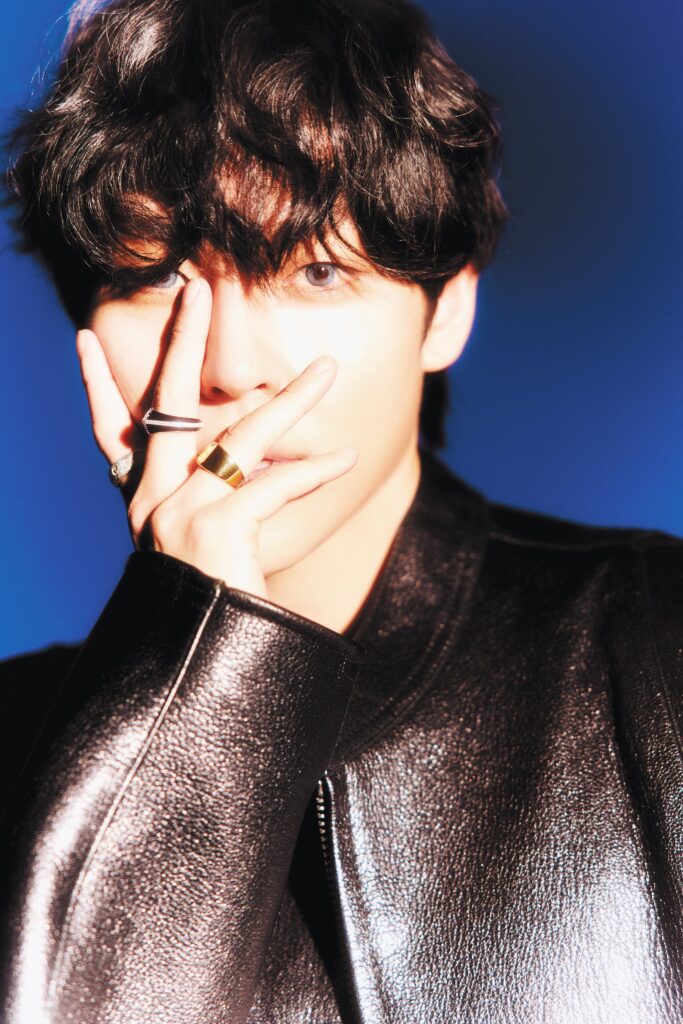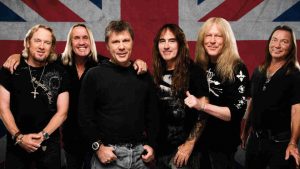Woosung has followed up The Rose’s album Dual and his 2022 solo release Moth with a new album, 4444. In some ways, this current project reflects the themes of duality and transformation in his previous work. Like these other albums, 4444 is evocative just in its title. The number 4 is associated with death in Korean culture, but in numerology, 4444 is an angel number signifying resilience and personal growth. The multiple connotations of the title suggest that the album will encompass a spectrum of human experience.
Indeed, opening track “Paper Cuts,” featuring New Vaticans, frames the album, with layered vocals creating a choir-like effect. The song previews that the album will be diaristic in nature, promising:
All of my secrets
I keep in the dark
If you want a story, I’ll tell it all
Pre-release single “Day That I Died” tells one of the darkest stories: of loss, heartbreak, and grief. It is a hauntingly beautiful ballad that exemplifies how Woosung’s emotive vocals and thoughtful composition can propell storytelling. Woosung starts in a raspy lower register, singing “Woke up to the TV this morning / Your voice in my head like a recording.” The relatively spare instrumentation, with repeating piano chords, creates the effect of replaying the same moment. As he sings, “I won’t ever leave this room” while transitioning to an airy falsetto, the percussion enters in a low boom. The song becomes more full as it progresses, swelling with strings and Woosung’s background vocals. The production makes his voice feel almost submerged during his climactic high note during the bridge, as though overwhelmed in grief.
Title track “44 (Forget Forever)” also starts off as a piano ballad, in which Woosung muses, “If Heaven and Hell were to collide, would you choose darkness over light?” Even though synths punctuate the song from the beginning, “44” takes a surpassing musical direction. The beats build alongside the backing vocals and culminate in an EDM break after the refrain of “forget forever.” It may seem curious for a rock musician to incorporate the EDM genre, but Woosung has expressed a love for electronic music, and that love for the genre makes its appearance more seamless. Moreover, it is also an emotionally effective choice. In the context of “44”, it feels freeing, an awakening to live in the present moment.
The anthemic “Before We Die,” which appears earlier in the album, also follows a similar pattern of introducing EDM late into the song. “Before We Die” starts off as a sparkling rock track not unlike what The Rose would produce (fittingly, member Dojoon has production and arrangement credits on it). Soon enough, however, the chorus drops into trance beats following the line “before we die.” As with the title track, electronic beats in “Before We Die” convey the urgent embrace of the present that stems from a palpable recognition of one’s own mortality. In this case, such acknowledgment drives the pursuit of dreams and passion: “Don’t you ever think you can’t wear the crown / Wish it all.”
The album is loosely built around dualities, with pairs of songs grapplIng with the reality of death (“Before We Die” and “Day That I Died”), permanence (“44” and “Never Let Go,”) and romantic relationships (“Found You” and “Happy Alone”). “Found You,” for example, portrays a search for love. Vocally, the song culminates with Woosung crooning “I never believed in magic” and declaring “I think I love you” to intense, spacey synths. Then the song crescendos into a mostly instrumental, synth-based outro, mirroring the intensity Woosung conveyed in his vocals.
In contrast, “Happy Alone,” a bluesy acoustic track featuring melodic rap from B.I, proclaims, “Feel so much better without you, babe.” The song, with its relatively straightforward production and more upbeat tone, initially feels like an anomaly on the album. It makes more sense when considered in light of the organizing principles of the album: confessional storytelling (as introduced in opener “Paper Cuts”) and the dualities explored subsequently. The presence of “Happy Alone” on 4444 underscores that one’s personal journey is not linear.
Closing track “Let There Be Light” calls back to the earlier question posed in “44”: “Would you choose darkness over light?” The song seems to provide an answer, welcoming in light and optimism. “Let There Be Light” employs the electronic dance and alternative pop rock fusion found elsewhere in the album, but feels more settled than “Before We Die” or “44.” Bol4 contributes her delicate vocals in the second verse, and her harmonies with Woosung suggests that his journey is shared.
With 4444, Woosung has crafted an introspective album that is as diverse in its soundscapes as it is in the experiences it portrays. Whether through poignant ballads or pulsating dance beats, the album reflects Woosung’s ability to convey intense emotion that reflects his personal journey. His is not a linear path, but instead winds and curves in response to life’s deep complexities. 4444 invites listeners to accept both light and darkness, love both oneself and others, and acknowledge death while embracing life.
(YouTube. Lyrics via Genius [1][2]. Images via Woolfpack/Transparent Arts).



